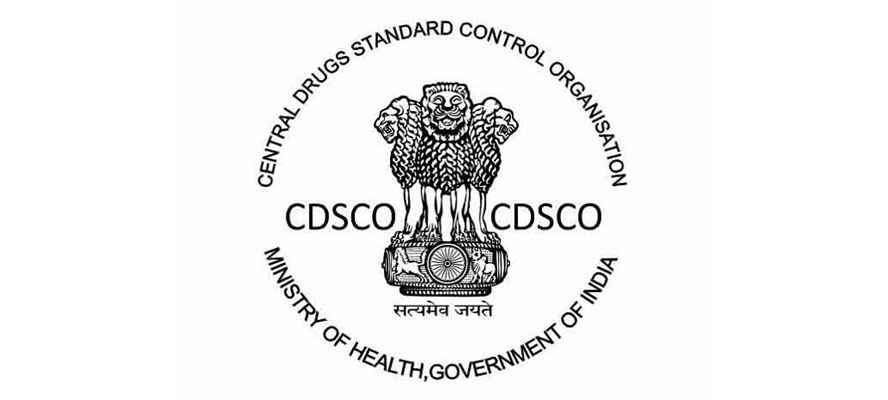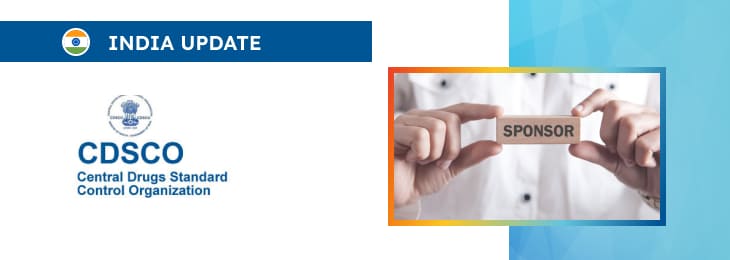The new article provides extensive clarifications regarding the responsibilities of study sponsors as the parties playing the key role in the investigation process.

Table of content
The Central Drugs Standard Control Organization (CDSCO), an Indian regulating authority in the sphere of healthcare products, has published a guidance document dedicated to Good Clinical Practices. The document provides an overview of the best principles and approaches, as well as additional clarifications and recommendations to be considered by the parties responsible for clinical trials involving healthcare products in order to ensure compliance with the applicable legal framework.
Introduction
In clinical research, the sponsor plays a critical role in ensuring that the study is conducted ethically, safely, and in accordance with Good Clinical Practices (GCP) and regulatory standards. This document outlines the key responsibilities of the sponsor, from selecting investigators and study sites to managing study data, safety, and compliance with ethical standards.
These responsibilities are crucial for ensuring the integrity of the study and the well-being of participants.

Investigator and Clinical Study Site Selection
First of all, the sponsor is responsible for selecting qualified investigators and appropriate institutions to conduct the study. This includes evaluating the suitability of the study site and ensuring that investigators have the necessary training and experience.
In multi-centric studies, the sponsor is also tasked with organizing and selecting coordinating committees and investigators. Before entering into an agreement with investigators or institutions, the sponsor must provide them with the study protocol and relevant product information, allowing sufficient time for review.
Agreement and Contract
The sponsor must formalize agreements with investigators, institutions, and service providers to ensure compliance with GCP, regulatory requirements, and the study protocol.
These agreements should cover key aspects, including:
- Adherence to study procedures for data recording, monitoring, auditing, and inspection;
- Retention of essential records for the required period; and
- Financial support, fees, and other compensations
In studies with multiple sponsors, a documented agreement should clearly define the roles and responsibilities of each party. Any changes to the agreement should be documented and updated as needed.
Sponsor Oversight
The sponsor is responsible for overseeing the entire study process, ensuring that it is conducted in accordance with the protocol, regulatory requirements, and ethical standards.
Key oversight responsibilities include:
- Ensuring the quality of the study design and data to produce reliable results.
- Monitoring protocol deviations that could impact participant safety or the reliability of the study.
- Managing risks throughout the planning, conduct, and reporting phases.
- Establishing independent committees, such as Data Monitoring Committees (IDMC) and endpoint adjudication committees, to assess the study’s progress and make recommendations.
- Ensuring that standard operating procedures (SOPs) are in place for all study-related activities.
Allocation of Activities
Before initiating a study, the sponsor must define and allocate all study-related activities to qualified individuals or organizations. This includes assigning responsibilities to biostatisticians, clinical pharmacologists, physicians, data scientists, auditors, and monitors.
Medical expertise should be readily available to address any study-related medical issues.
Study Management, Data Handling, and Record Keeping
The sponsor must secure agreements with all involved parties regarding responsibilities such as access to study sites, data processing, and reporting. They are responsible for implementing quality assurance and control processes to ensure that the study is conducted and reported in compliance with the protocol, GCP, and regulatory requirements.
Key responsibilities include:
- Ensuring that computerized systems used in the study are validated, secure, and properly managed.
- Maintaining safe custody of study documents for at least five years after the study’s completion.
- Allowing investigators access to data collected during the study to make informed decisions about participant safety.
- Protecting study data from unauthorized access, alteration, or loss.
Reimbursement and Compensation
Participants may be compensated for their involvement in the study, and the sponsor is responsible for providing insurance or indemnifying the investigator or institution against claims arising from the study. Compensation must be approved by the ethics committee and should not serve as an undue inducement.
Ethics Committee Review
The sponsor must ensure that the study is reviewed and approved by a registered ethics committee before it begins. This includes obtaining documented approval or recommendations from the ethics committee, particularly in cases where modifications to the protocol or informed consent are required.
Information on Investigational Products
The sponsor is responsible for providing investigators with an Investigator’s Brochure or other relevant product information, including chemical, pharmaceutical, toxicological, and clinical data. Any new information arising during the study must be communicated to both the investigator and the ethics committee.
Supply, Storage, and Handling of Investigational Products
The sponsor is responsible for supplying the investigational product, comparator, rescue medication, or placebo in accordance with Good Manufacturing Practices (GMP) standards. The sponsor must ensure that the product is packaged appropriately to prevent deterioration and maintain blinding procedures.
Responsibilities also include:
- Communicating storage conditions and reconstitution procedures to all involved parties.
- Documenting procedures for the safe handling, storage, and retrieval of the product.
- Maintaining records of product quantities and batch numbers.
- Ensuring that unused products are either returned or disposed of appropriately.
In blinded studies, the sponsor must implement mechanisms to prevent and detect unblinding and establish procedures for unblinding in medical emergencies.
Safety Assessment and Reporting
The sponsor is responsible for ongoing safety evaluations of the investigational product. They must notify investigators, ethics committees, and regulatory authorities of any findings that could impact participant safety or the conduct of the study.
Serious adverse events (SAEs) must be reported within 14 days of occurrence, in accordance with regulatory requirements.
Study Reports
At the conclusion of the study, the sponsor is responsible for preparing a comprehensive final report that meets regulatory and marketing requirements. This report should adhere to standards such as ICH E3 and include safety updates and periodic reports as required by regulatory authorities.
Audits
The sponsor must conduct audits as part of their quality assurance system to evaluate compliance with the protocol, GCP, and regulatory requirements. Auditors should be independent of the study team and qualified to conduct audits.
The sponsor must act promptly if non-compliance is identified and notify regulatory authorities as needed.
Premature Termination or Suspension of a Study
If the sponsor decides to terminate or suspend a study prematurely, they must notify the investigator, institution, regulatory authorities, and ethics committee, providing documented reasons for the decision.
Transfer of Activities to Service Providers
If the sponsor transfers any study-related duties to a service provider, they remain ultimately responsible for the quality and integrity of the study data. The sponsor must assess the suitability of the service provider and ensure that the necessary oversight is in place.
All responsibilities transferred to the service provider must be documented.
Conclusion
In summary, the responsibilities of the sponsor in clinical research are extensive and critical to ensuring that studies are conducted ethically, safely, and in compliance with regulatory standards. By fulfilling these responsibilities, sponsors help safeguard participant safety, ensure the integrity of the data, and contribute to the advancement of medical knowledge.
How Can RegDesk Help?
RegDesk is an AI-powered Regulatory Information Management System that provides medical device companies with regulatory intelligence for over 120 markets worldwide. It can help you prepare and publish global applications, manage standards, run change assessments, and obtain real-time alerts on regulatory changes through a centralized platform. Global expansion has never been this simple.

